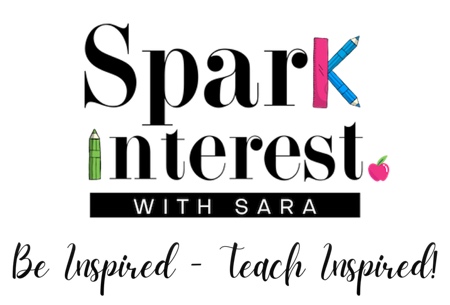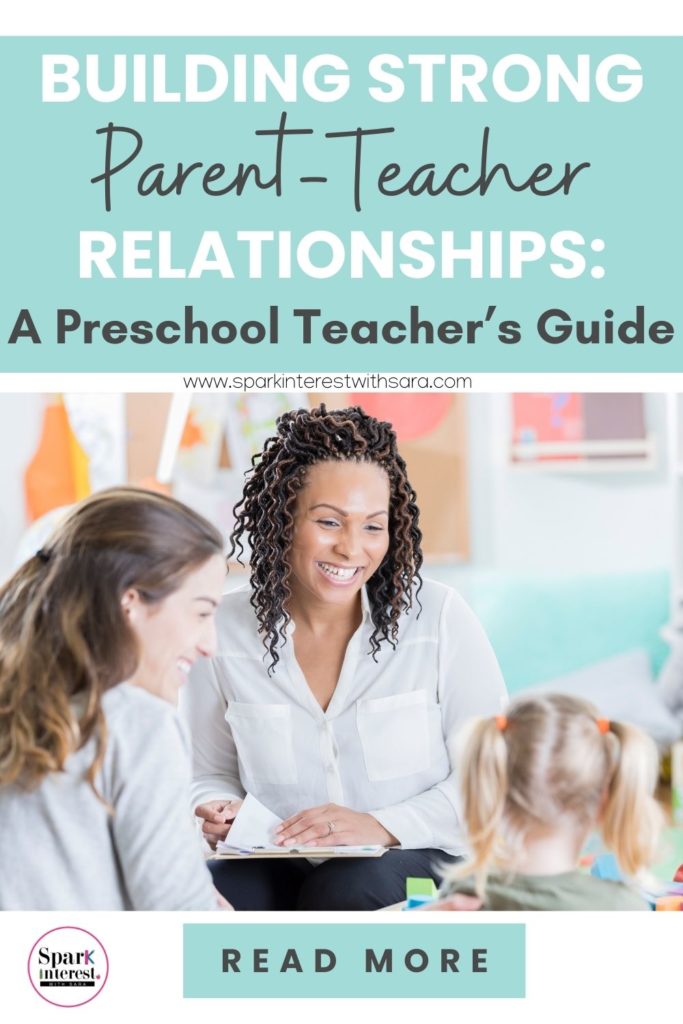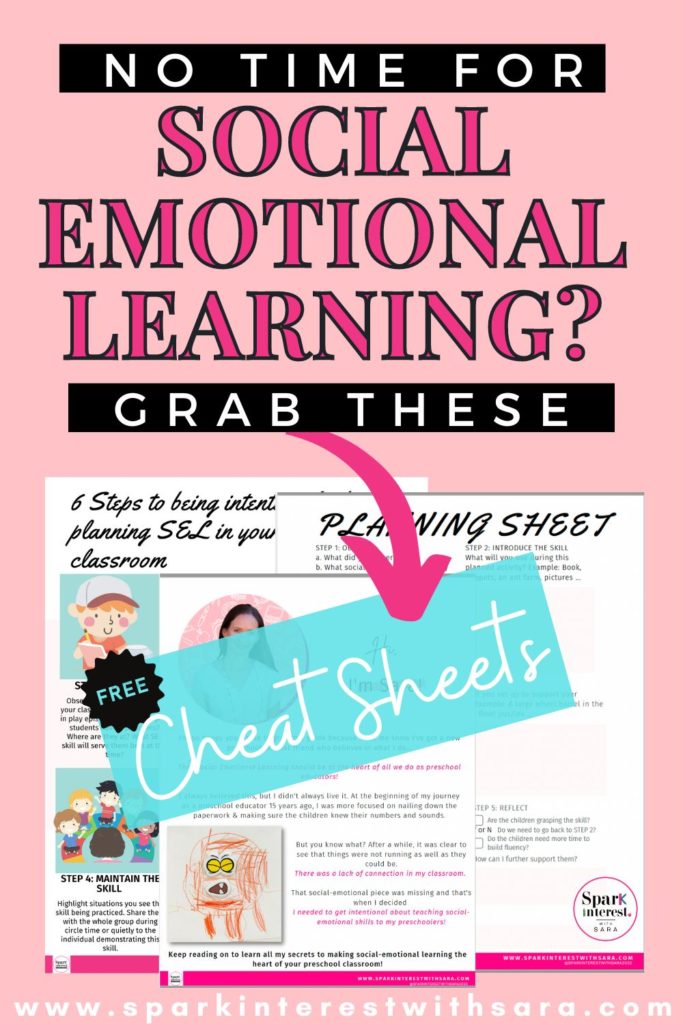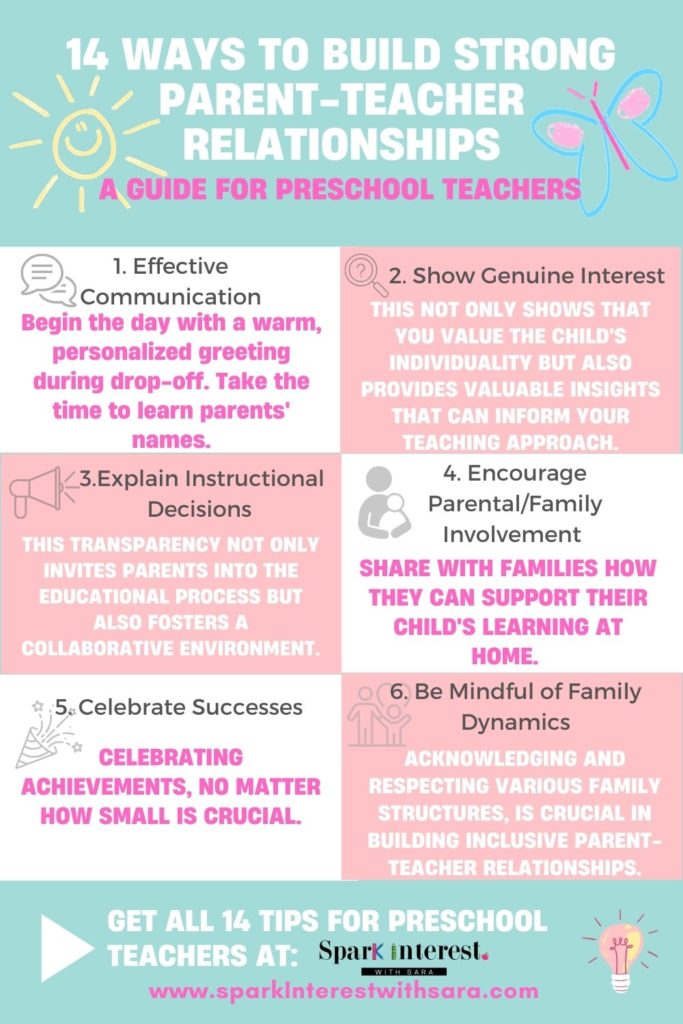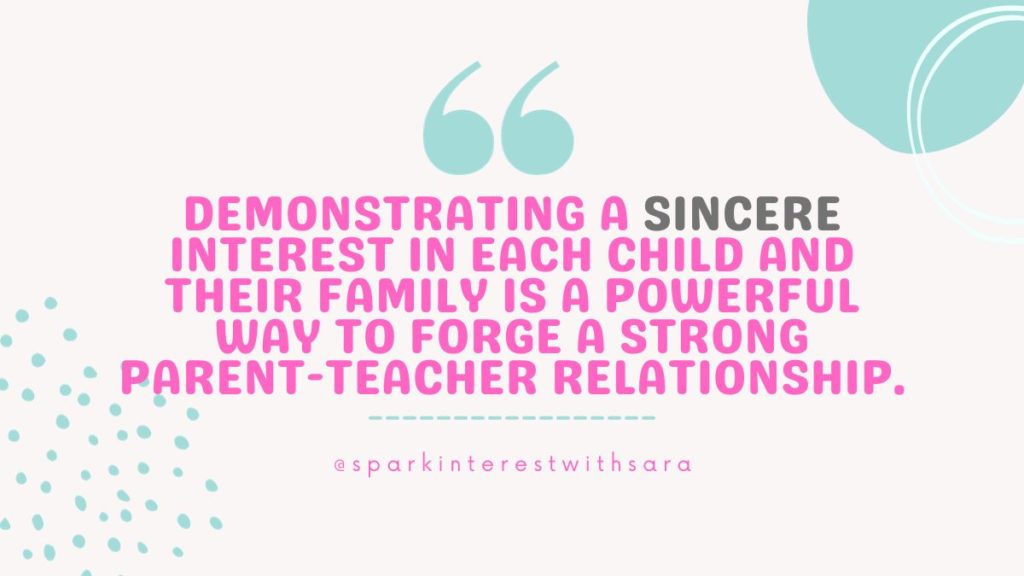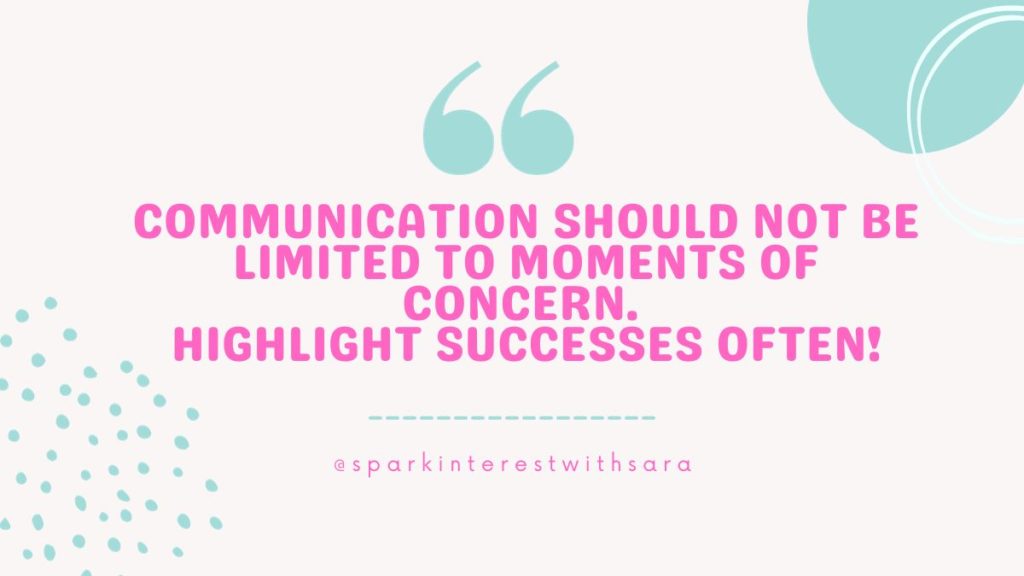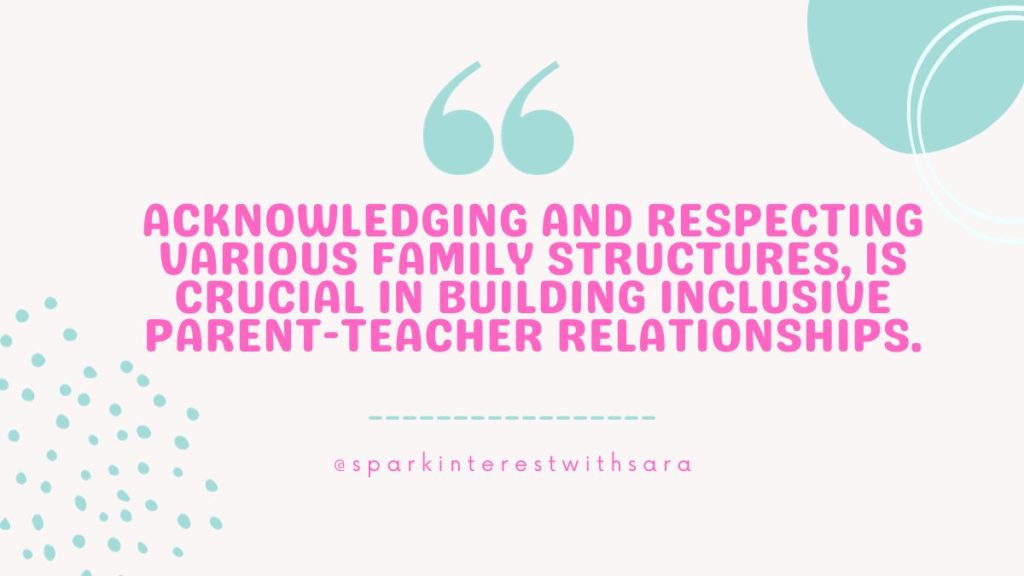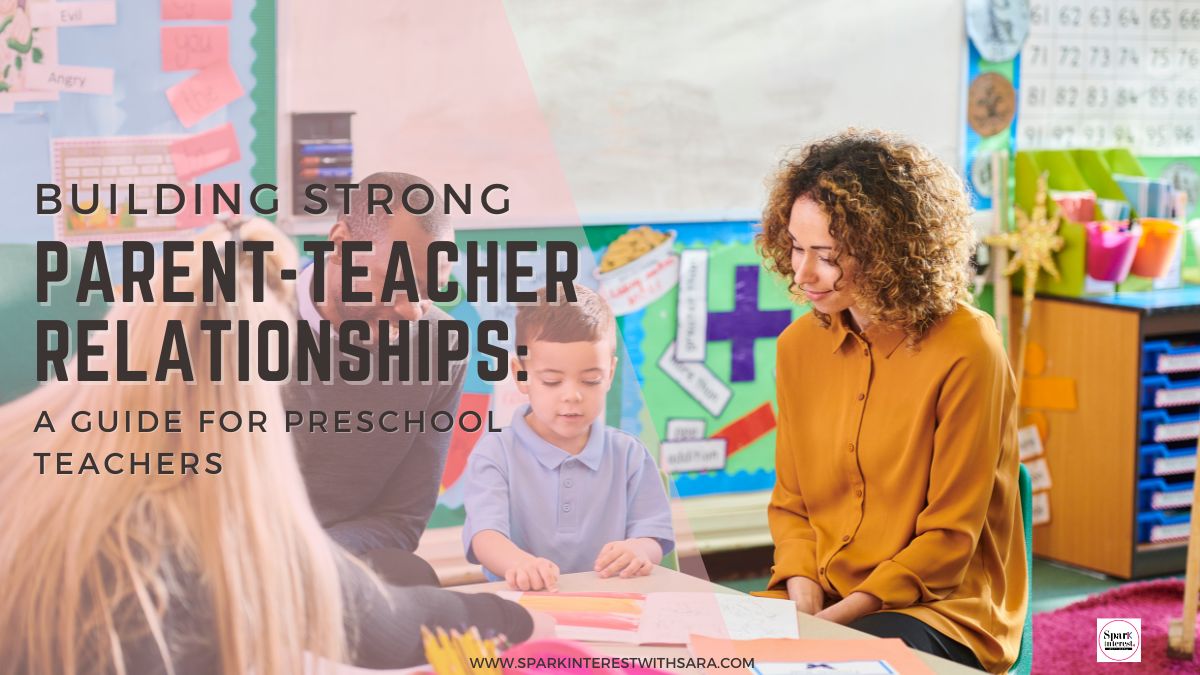
I was sitting in front of my son’s classroom teacher last week and as I sat there, I realized pretty quickly that I probably wouldn’t have needed to write that strong email and we probably wouldn’t have needed to organize that meeting if we had developed a deeper parent-teacher relationship.
It was clear in that moment that as a parent, I felt disconnected and misunderstood; I guess for his teacher, he couldn’t understand why I was feeling that way when he’s been doing so much to understand and support my son’s unique challenges.
Being a teacher and a parent, allows for this distinctive viewpoint. A deeper understanding of what families go through navigating schools and at the same time, an enhanced insight and shared experience of being a teacher.
This led me into the spiral of wondering what could have led to a better parent-teacher relationship? How could he have connected better to allow me to see all the value he brings into my son’s education?
When I wear my teacher hat, my students always come first. But, nurturing the parent-teacher relationship is admittedly not high on my list of priorities. How true is that for you?
This episode with my son’s teacher (who is an amazing human and teacher – we love you Mr. V), has inspired me to dig deep into how I can do better as a teacher to build richer, connection filled, parent-teacher relationships. I hope by sharing this information, it gives you renewed energy in growing those connections with your families.
What is a Parent-Teacher Relationship?
Before I jump in to the nitty gritty world of parent-teacher relationships, I wanted to make sure you have downloaded my Free Guide to Sprinkling SEL into your preschool classroom ???????? Super useful and easy to use! Cheat sheets included! YEY!
Now let’s get back to parent-teacher relationships…
A parent-teacher relationship is like a special team-up between, the parent or career, and a child’s teacher. It’s all about working together as a team, to support our little learners, and make sure they thrive in their early school years.
Think of it as a partnership where everyone has a role to play. The parent knows their child best – their quirks, their interests, and what makes them tick. The teacher, on the other hand, is a pro at taking their own knowledge of the child and creating a dynamic learning environment and curriculum where each child has the opportunity to thrive.
This relationship is built on trust, open communication, and a shared goal of giving the child the best start in their learning journey. It’s not just about occasional chats but an ongoing relationship that supports a child’s growth both in and out of the classroom.
Why is a Parent-Teacher Relationship Important?
When parents are actively engaged and feel connected, children develop a profound sense of security within the learning environment, thus helping build a positive classroom community. This foundational sense of safety bolsters their overall well-being, establishing a positive platform for optimal learning experiences.
This security is the bedrock upon which a child’s confidence and willingness to explore, learn, and grow are built. It provides them with the emotional stability necessary for effective cognitive development.
Trust is the cornerstone of any successful relationship, and the parent-teacher dynamic is no exception. When parents place their trust in you as their child’s teacher, they are more likely to be actively involved and supportive throughout their child’s educational journey.
This trust forms the basis for open communication, collaborative problem-solving, and a shared commitment to the child’s holistic development. It allows for a harmonious partnership between educators and parents, ultimately benefiting the child’s educational experience.
How to Build A Connection Filled Parent-Teacher Relationship
These simple yet powerful strategies will help create a warm, open, and supportive environment that benefits both the child and their families. You don’t have to do them all at once. It doesn’t need to be yet another million things to add to your day. All I hope is that you pick one or two of these and just start working on developing those relationships. It’ll be worth it, I promise!
- Effective Communication
One of the primary conduits for establishing a strong parent-teacher relationship is through effective communication. This encompasses a range of interactions that collectively contribute to a supportive and engaged educational community.
- Begin the day with a warm, personalized greeting during drop-off. Take the time to learn parents’ names, creating a welcoming atmosphere that fosters a sense of belonging and trust.
- At pick-up, provide parents with a brief overview of the day’s activities. Direct them to displays showcasing their child’s work, offering them a tangible glimpse into their child’s learning journey.
- Encourage parents to actively participate by inviting them into the classroom when feasible. This not only promotes a deeper connection but also provides parents with firsthand insight into their child’s learning environment.
- Show Genuine Interest
Demonstrating a sincere interest in each child and their family is a powerful way to forge a strong parent-teacher relationship. It’s like extending a friendly hand, letting both the child and their family know that you’re genuinely excited to be a part of their learning adventure.
- A genuine smile when you encounter a parent communicates warmth, approachability, and an eagerness to connect.
- Ask thoughtful questions about the child’s interests, activities, and experiences. This not only shows that you value the child’s individuality but also provides valuable insights that can inform your teaching approach.
- Explain Instructional Decisions
Transparency in your teaching methods is key to building trust with parents. By explaining the ‘why’ behind your instructional decisions, you empower parents with a deeper understanding of the educational strategies you employ.
- This transparency not only invites parents into the educational process but also fosters a collaborative environment where parents and teachers work together for the child’s benefit.
- Encourage Parental/ Family Involvement
Actively involving families in their child’s learning journey is a powerful way to strengthen the parent-teacher relationship. When parents/carers feel like they’re an integral part of their child’s education, it creates a sense of shared purpose and investment in the child’s success. Encouraging parents/carers to join in activities, attend parent-teacher meetings, and participate in special events fosters a deeper connection and builds a true sense of community around the child’s learning experience.
This collaborative effort not only benefits the child but also enriches the entire educational journey for everyone involved.
- Share with parents how they can support their child’s learning at home. Provide them with insight into lesson topics and activities that they can explore together, extending the learning beyond the classroom.
- Celebrate Successes
Celebrating achievements, no matter how small is a crucial component of nurturing a positive parent-teacher relationship.
- Communication should not be limited to moments of concern. Highlighting successes through positivity notes, awards, or photos reinforces the idea that you value and appreciate the child’s progress and achievements.
- Individualized Updates
While it’s important to communicate about the class as a whole, providing specific updates about individual children is equally essential. This personalized approach acknowledges each child’s unique contributions and achievements.
- Ensure that parents see their child’s name mentioned and their work or achievements showcased. This simple act demonstrates that you recognize and value each child’s individuality.
- Seek Assistance and Contributions
Inviting parents to contribute their expertise or time in units you’re studying fosters a collaborative educational community.
- Recognize that parents bring a wealth of knowledge and skills to the table. By inviting their involvement, you not only enhance the learning experience for the child but also strengthen the partnership between home and school.
- Share Resources
Providing parents with resources, such as articles, podcasts, or blog posts, offers them valuable insights into early childhood education and parenting.
- Pointing parents towards informative resources demonstrates your commitment to their child’s development and empowers them with additional tools to support their child’s learning journey.
- Be Mindful of Family Dynamics
Acknowledging and respecting various family structures, such as divorced parents, single parents, or extended families, is crucial in building inclusive parent-teacher relationships.
- Tailor your communication to the specific needs and circumstances of each family, ensuring that every parent feels valued and understood.
- Amplify Student Voices
Showcasing your students’ work, their words and their unique ideas empowers them and validates their contributions to the classroom.
– Providing opportunities for students to share their accomplishments and perspectives instills a sense of pride and confidence in their abilities.
- Cut the Jargon
Simplifying your language and avoiding teacher-specific jargon helps parents feel more included and informed. By speaking in everyday terms, you ensure that parents can easily understand and engage with the information you share.
This open approach creates a welcoming environment where everyone feels comfortable asking questions and participating actively in their child’s education.
- Communicate in clear, relatable terms to ensure that parents can easily grasp the information you’re sharing.
- Invite Parents to Celebrations
Extending invitations for special events and celebrations reinforces a positive connection between home and school. It’s like opening the doors of the classroom and saying, “Come join in the joy!” These moments of celebration provide a wonderful opportunity for parents to see their child’s progress, interact with fellow parents, and share in the pride of their child’s achievements.
- Creating opportunities for parents to participate in these moments of celebration fosters a sense of belonging and shared pride in the child’s achievements.
- Think of projects, programs, and celebrations that allow families to see their student’s hard work and progress in your class.
- Set a celebration time frame so parents do not stay too long and you are able to resume your day and learning.
13. Express Gratitude
Regularly expressing gratitude for parents’ support and involvement is a powerful way to strengthen the parent-teacher relationship.
- Recognize and appreciate the valuable role parents play in their child’s education. A simple ‘thank you’ goes a long way in nurturing a positive and collaborative partnership.
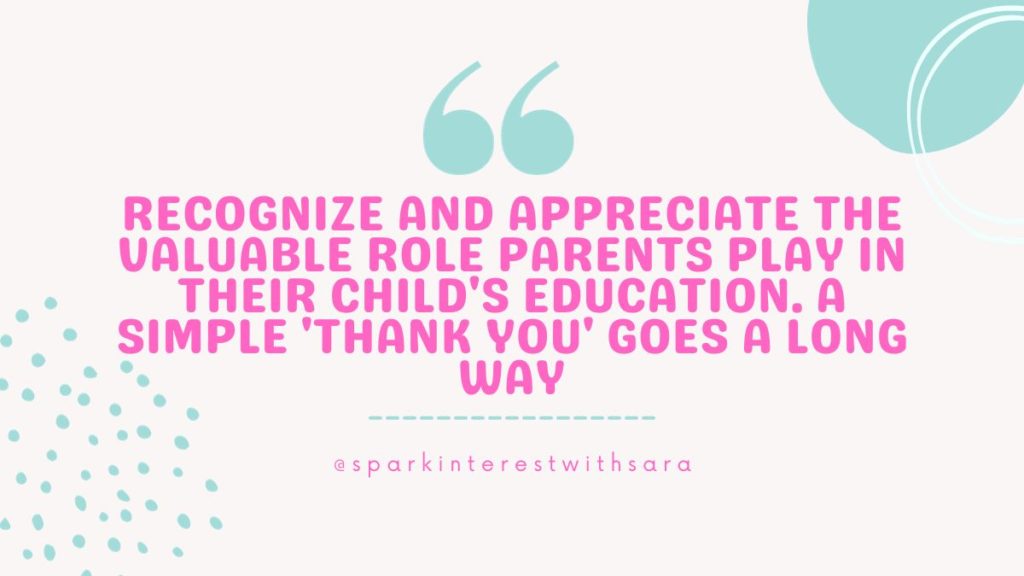
14. Be Authentic
Finally, being authentic is paramount. Authenticity builds trust and helps parents feel more comfortable and open in their interactions with you.
- Let your genuine self shine through in your interactions with parents. This authenticity lays the foundation for a genuine and enduring parent-teacher relationship.
By incorporating these comprehensive strategies into your approach, you’ll be well on your way to establishing strong, positive parent-teacher relationships that enrich the educational journey for your students and their families. Remember, your impact on a child’s life extends far beyond the confines of the classroom, and a connected, engaged parent-teacher relationship can make all the difference.
Want to build stronger classroom community? Check out these blog posts:
???? 7 Practical Tips for Building a Supportive Classroom Community in Early Childhood
???? How to Build Relationships with your Preschoolers from Day One
Let's Connect:

Sara
